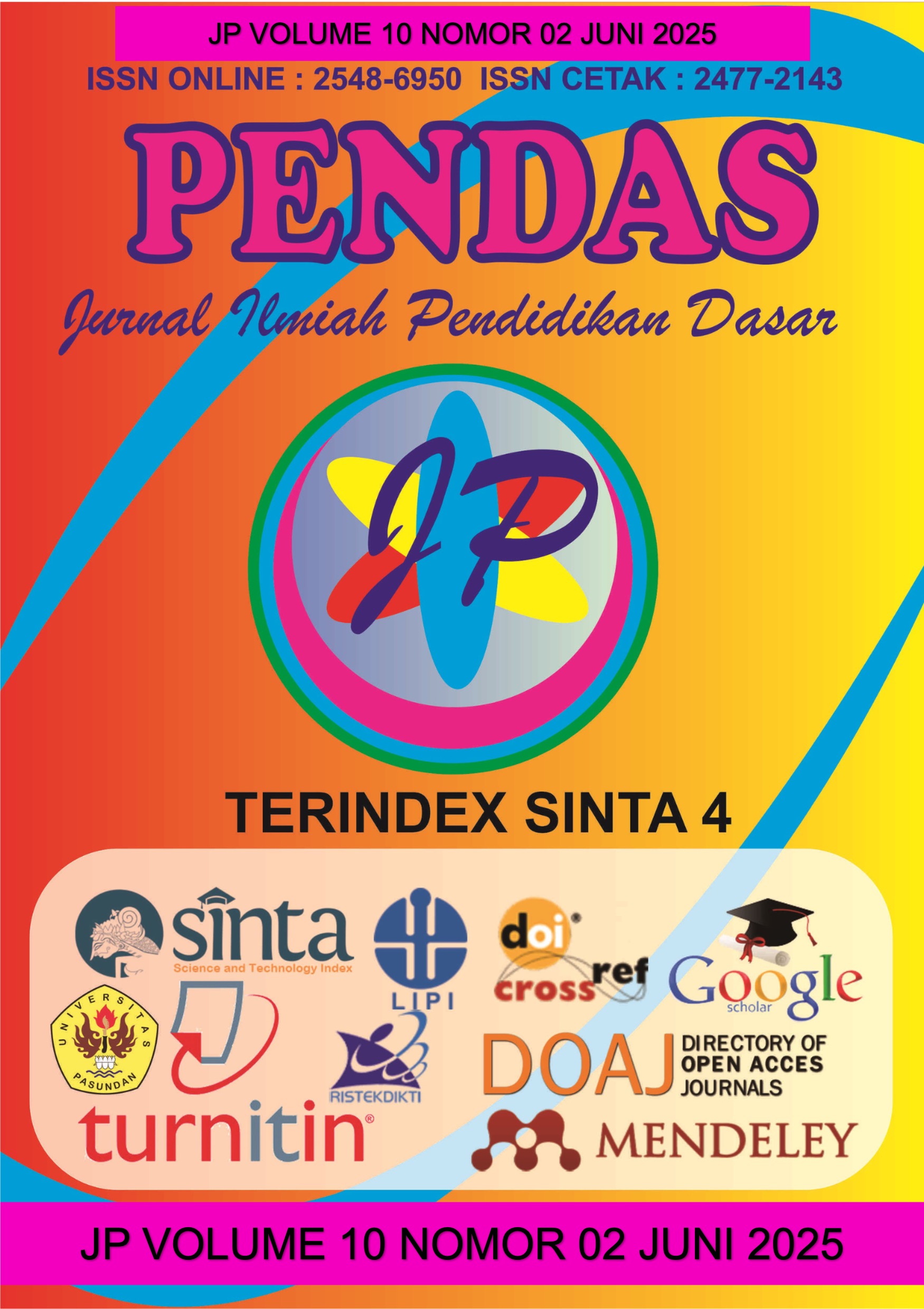Eksplorasi Pengalaman Siswa dalam Project Based Learning Berbasis Microsite: Studi Fenomenologi Literasi Ekologi di Sekolah Dasar
Eksplorasi Pengalaman Siswa dalam Project Based Learning Berbasis Microsite: Studi Fenomenologi Literasi Ekologi di Sekolah Dasar
DOI:
https://doi.org/10.23969/jp.v10i02.25046Abstract
ABSTRACT
This phenomenological qualitative study explores elementary students' subjective experiences in Project-Based Learning (PjBL) using microsites to enhance ecological literacy. Despite technological advancements in education, conventional methods often fail to foster comprehensive ecological awareness due to teacher-centered approaches and limited media (Ernst & Monroe, 2022). This research addresses this gap by investigating how microsite-based PjBL shapes students' environmental consciousness through interactive, contextual learning (Hernández-Ramos & De La Paz, 2021). The study involved 28 fourth-grade students from Malang, Indonesia, who participated in a four-week microsite project integrating multimedia content (videos, infographics) and collaborative activities. Data were collected through semi-structured interviews (10 students), participatory observations (6 sessions), and document analysis (digital posters, daily reflections), then analyzed using van Manen’s (2022) phenomenological approach to identify essential themes.
Three key findings emerged: (1) Microsites as Interactive Exploration Spaces: 78.6% of students (22/28) reported that multimedia features facilitated autonomous learning, though 5 initially faced technical challenges; (2) Digital Collaboration and Emotional Engagement: 65% (18/28) felt motivated by collaborative features (e.g., comment sections), while 7 students experienced initial discomfort with digital interaction; and (3) Contextual Learning and Ecological Transformation: 19 students adopted pro-environmental behaviors (e.g., reducing plastic use), supported by 85.7% of reflections (24/28) showing heightened environmental awareness. The study highlights microsites’ role as "digital lifeworlds" (van Manen, 2022) that merge exploration, collaboration, and emotional reflection, offering a student-centered alternative to conventional methods. Practical implications include designing microsites with storytelling elements and structured social features. Limitations include the single-school sample, suggesting future research on long-term impacts and comparisons with other digital tools (e.g., augmented reality).
Downloads
References
Creswell, J. W. (2014). Research design: Qualitative, quantitative, and mixed methods approaches (4th ed.). Sage Publications.
Denzin, N. K., & Lincoln, Y. S. (2023). The SAGE handbook of qualitative research (7th ed.). Sage Publications.
Ernst, J., & Monroe, M. (2022). Environment-based education: Creating high-performance schools and students. North American Association for Environmental Education.
Hernández-Ramos, P., & De La Paz, S. (2021). Learning in a technology-enhanced environment: A meta-analysis of the impact on student outcomes. Journal of Educational Computing Research, 59(5), 785-810. https://doi.org/10.1177/0735633121993275
Krajcik, J., & Shin, N. (2023). Project-based learning. In R. K. Sawyer (Ed.), The Cambridge handbook of the learning sciences (3rd ed., pp. 275-297). Cambridge University Press.
Larmer, J., Mergendoller, J., & Boss, S. (2021). Setting the standard for project based learning: A proven approach to rigorous classroom instruction. ASCD.
Maulidah, N., Pratiwi, R., & Astuti, Y. (2022). Digital storytelling for ecological literacy: A case study of elementary students in Indonesia. Journal of Environmental Education, 53(4), 221-235. https://doi.org/10.1080/00958964.2022.2072803
McBride, B. B., Brewer, C. A., & Berkowitz, A. R. (2023). Ecological literacy: Preparing students for the 21st century. Frontiers in Education, 8, Article 1021056. https://doi.org/10.3389/feduc.2023.1021056
Smith, J. A. (2023). Interpretative phenomenological analysis: A qualitative methodology for exploring lived experience. Qualitative Psychology, 10(1), 1-12. https://doi.org/10.1037/qup0000265
van Manen, M. (2022). Researching lived experience: Human science for an action sensitive pedagogy (3rd ed.). Routledge..
Downloads
Published
Issue
Section
License
Copyright (c) 2025 Pendas : Jurnal Ilmiah Pendidikan Dasar

This work is licensed under a Creative Commons Attribution 4.0 International License.



















